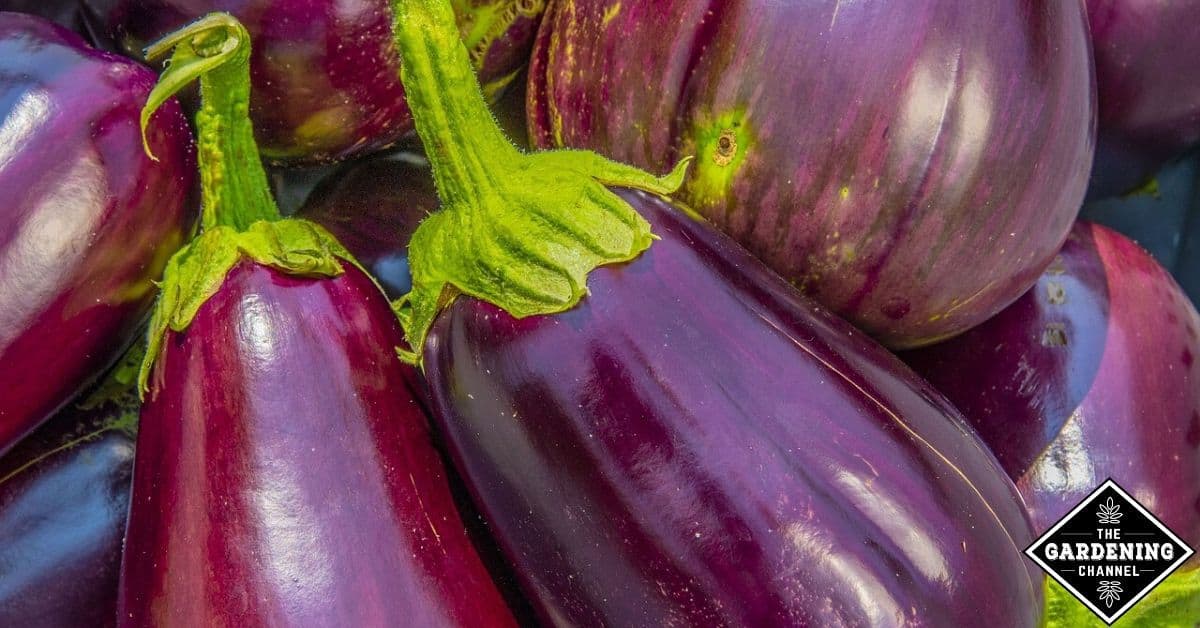Beneath its darkly glossy skin, eggplant remains a mystery to many. Will it be bitter if I don’t salt it? Why does it soak up oil like a sponge? Let’s dispense with the mystery and let this voluptuous vegetable fulfil its rich and meaty purpose.
Older recipes call for salting eggplant to draw out the bitter juices, but today’s eggplants are less bitter (unless very large), so salting is largely unnecessary. It will, however, help the spongy flesh absorb less oil and crisp up like a dream.
To salt, just slice the eggplant into rounds, scatter 1 teaspoon of salt on top, leave for 30 minutes, then pat dry. Advertisement
Brining (soaking in salted water) will do the same job but also make the flesh super creamy.
To brine, dissolve 1 tablespoon of salt in 1 cup of boiling water, stir in 1 litre of cold water, and drop in the sliced eggplant. Place a saucepan lid on top to keep it submerged, leave for 1 hour, then drain and pat dry.
Because the eggplant is already seasoned, cut back on any additional salt your recipe may call for in the cooking process.
To fry, heat some good oil in a frying pan, pat dry the salted eggplant, and fry until golden, turning once. As mentioned, eggplant will soak up any oil in sight, so be sure to pre-salt or brine to make it less thirsty.
Baking will use much less oil, with the advantage of being very hands-off. To bake, pat dry the salted eggplant, brush the rounds with olive oil and cook until golden, turning once.
Or cut the eggplant in half lengthwise, brush with olive oil and bake, cut-side down, until soft, flipping over to serve.
You can also bake the eggplant whole. Coat with olive oil and bake in a hot oven for 45 minutes or until partially collapsed. The inside will be a treasure trove of creamy flesh.
Eggplant brings velvety meatiness to vegetable stews and curries. Chop the eggplant and fry briskly in oil until coloured, then add your liquid – canned tomatoes, stock, coconut milk, etc – and simmer for 20 minutes until tender.
For a properly smoky baba ghanoush, first place a layer of kitchen foil around a gas burner element to catch any mess (you can thank me later). Char the eggplant over the gas flame on your cooktop, turning with long-handled tongs until the skin blackens.
Transfer to a hot oven for 20 minutes or until tender, then peel off the skin and drain off the juices. Roughly chop the flesh, and whiz in a blender with a little garlic, sea salt, lemon juice and 2 tablespoons of tahini, thinning with water as required. Rich and smoky, earthy and yet creamy, it’s eggplant at its best.Advertisement
I tend to soak the slices in a bowl of water with a couple of tablespoon of salt for about 30-45 minutes. It doesn’t have to do with bitterness, but I find that in doing this, the fried eggplant turns out less greasy,” Jenkins says.

Once the eggplant is brined and dried, you can proceed with your recipe of choice. Really, the only time not to brine eggplant is when you want it to fall apart during cooking, as in an eggplant dip or eggplant soup, or if youre grilling a whole eggplant so that it falls apart into a natural purée.
To brine, dissolve 1 tablespoon of salt in 1 cup of boiling water, stir in 1 litre of cold water, and drop in the sliced eggplant. Place a saucepan lid on top to keep it submerged, leave for 1 hour, then drain and pat dry.
Transfer to a hot oven for 20 minutes or until tender, then peel off the skin and drain off the juices. Roughly chop the flesh, and whiz in a blender with a little garlic, sea salt, lemon juice and 2 tablespoons of tahini, thinning with water as required. Rich and smoky, earthy and yet creamy, it’s eggplant at its best.Advertisement
Eggplant brings velvety meatiness to vegetable stews and curries. Chop the eggplant and fry briskly in oil until coloured, then add your liquid – canned tomatoes, stock, coconut milk, etc – and simmer for 20 minutes until tender.
Or cut the eggplant in half lengthwise, brush with olive oil and bake, cut-side down, until soft, flipping over to serve.
Brining (soaking in salted water) will do the same job but also make the flesh super creamy.
Salting Eggplant – Kitchen Wisdom – Martha Stewart
FAQ
What is the secret to cooking eggplant?
How long do you soak eggplant?
What happens if you don’t salt eggplant before cooking?
Why do eggplants need to be soaked before cooking?
Soaking to minimize oil absorption: Eggplants can absorb a significant amount of oil during cooking, especially when frying or sautéing. Soaking the eggplant in saltwater for 20-30 minutes before cooking can help to reduce oil absorption by breaking down the fruit’s cell walls.
How does one make eggplant water?
Cut an eggplant into slices or small pieces and add it to a jar with 1 liter of water. Then put it in the fridge and let it rest overnight. Drink the water on an empty stomach and throughout the day.
Should I rinse eggplant before cooking?
Many recipes call for salting and rinsing eggplant before cooking it to draw out its bitterness. Brining can be used instead and has the added advantage of helping the eggplant keep its shape when it’s cooked, whether your recipe calls for baking, frying, or grilling.
How do you remove water from eggplant?
Press the eggplant dry. For most applications, you want to dry the eggplant off as much as possible. Place the eggplant between two paper towels, and press it down on a hard surface with your hand, which will remove much of the water. Use immediately. Cut the eggplant.
